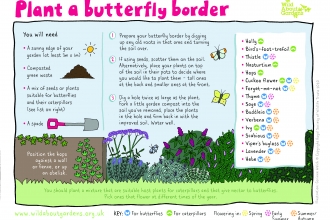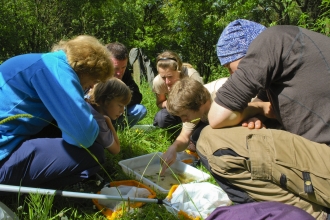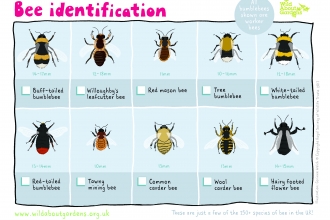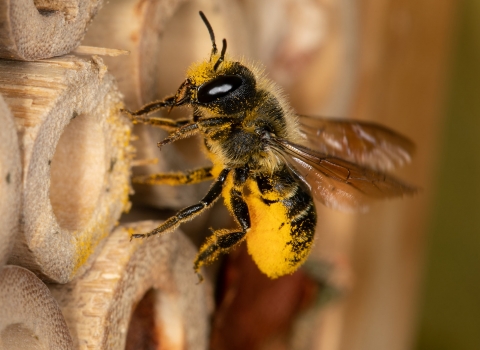Will you help the most important creatures on the planet?
41% of insect species face extinction.
The loss of their habitats and overuse of pesticides are two major reasons why these little creatures are dying out eight times faster than large mammals.
However, it’s not too late and with your help, we can put insects into recovery.
Claim your FREE Action for Insects guide and start to make a difference today.
By working together, we can change the future of insects. Starting right now, you can make small changes in your home, lifestyle and community that will help these fascinating creatures. Follow the advice in our Action for Insects guide and create an insect-friendly garden that is teeming with wildlife.
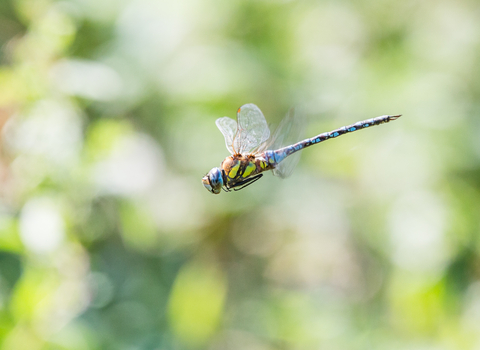
credit Sarah Lambert
Defra's National Action Plan for pesticide use is open for consultation
Did you know that the area of land treated with pesticides in the UK each year is almost 3 times the size of the UK itself*?
That figure doesn't include the chemicals used in our communities, local parks, or roadside verges. Or the chemicals we use in our homes and gardens or which get poured down our drains! Most of this is totally unnecessary. And it's impacting on our insects at an alarming rate.
We've got a chance to tell Government and industry to prioritise alternatives to pesticides and to see pesticides phased out for the long term.
Your views can help.
* https://issuu.com/pan-uk/docs/the_hidden_rise_of_uk_pesticide_use?e=280…
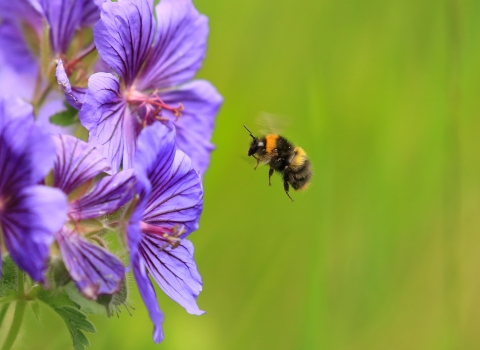
Jon Hawkins - Surrey Hills Photography
Say no to neonics
A pesticide known to kill bees has been authorised for farmers to use on sugar beet crops in England. The deadly neonicotinoid (or neonic), thiamethoxam, was banned EU-wide in 2018 because of the wide-spread harm it causes.
We are shocked that the Secretary of State, George Eustice, has used his power to allow this.
Please join our call to the Prime Minister to overturn this decision.
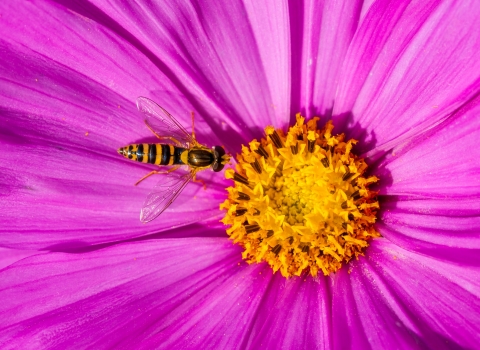
How will your Free Action for Insects guide help you to make a difference?
Packed full of easy to follow advice and tips. Our Action for Insects guide will help you to:
· Create a wildlife and insect-friendly garden
· Plan your garden and choose the right plants
· Stop using harmful chemicals inside your home and in your garden
· Make lifestyle changes that will benefit insects
· Find out more interesting facts and information to help create a Wilder Future
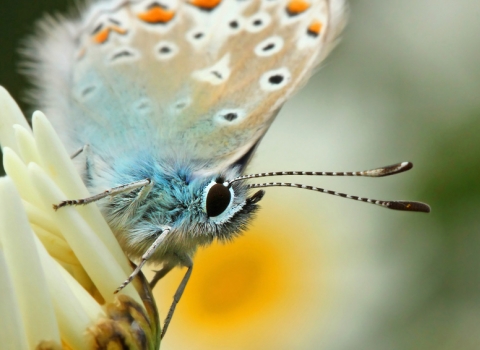
Jon Hawkins - Surrey Hills Photography
Reversing the Decline of Insects
The Wildlife Trusts has published a new report which shows how people, in every part of society, wherever they live, can take action to bring back insects. Everyone, everywhere, is being asked to become an insect champion.
The new Environment Act calls for the creation of Nature Recovery Networks to be enshrined in law so that nature has more wild spaces that are bigger and better connected. By making bug hubs in your garden to attract insects, your wild patch will become part of the bigger picture - a connected natural world where all wildlife can thrive. Watch our Wilder Future short film with Sir David Attenborough explaining the importance of Nature Recovery Networks.
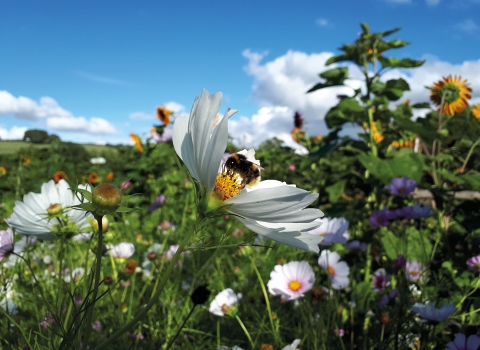
Photo credit: Cat Bolado - Kingcombe Wildlife Garden. Action for Insects
Why should we care?
Without insects many birds, bats, reptiles amphibians, small mammals and fish would die out as they would have nothing to eat.
87% of all plant species require animal pollination, most of it delivered by insects – that is pretty much all of them except grasses and conifers.
In addition, 3 out of 4 of all the crops that we grow require pollination by insects.
Only by working together can we address the causes of insect loss, halt and reverse them, and secure a sustainable future for insect life and for ourselves.
Together, we can stop this looming catastrophe and create an environment that is rich in nature for the benefit of wildlife and people.
Wilder Learning
Keep the whole family active and engaged with nature with our nature-based activities for adults and children alike. Ideal for home-schoolers!


